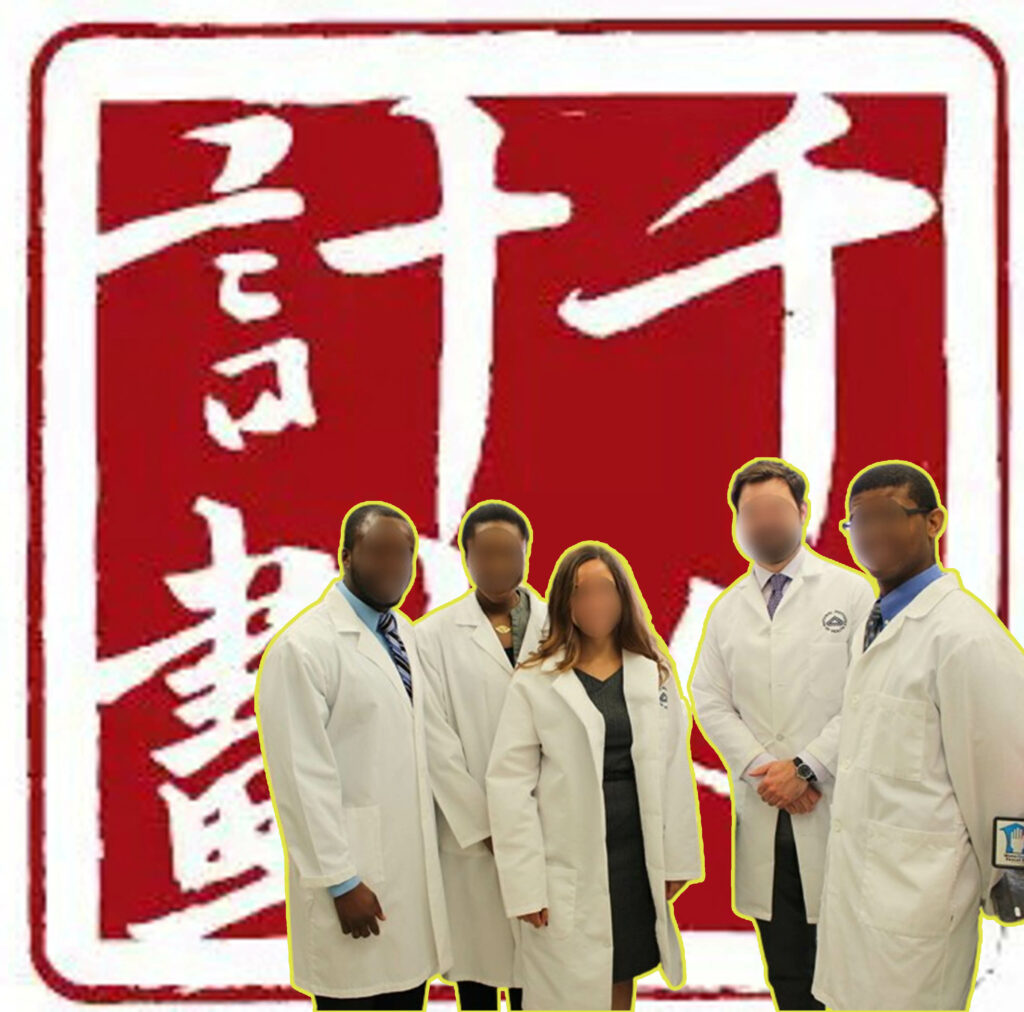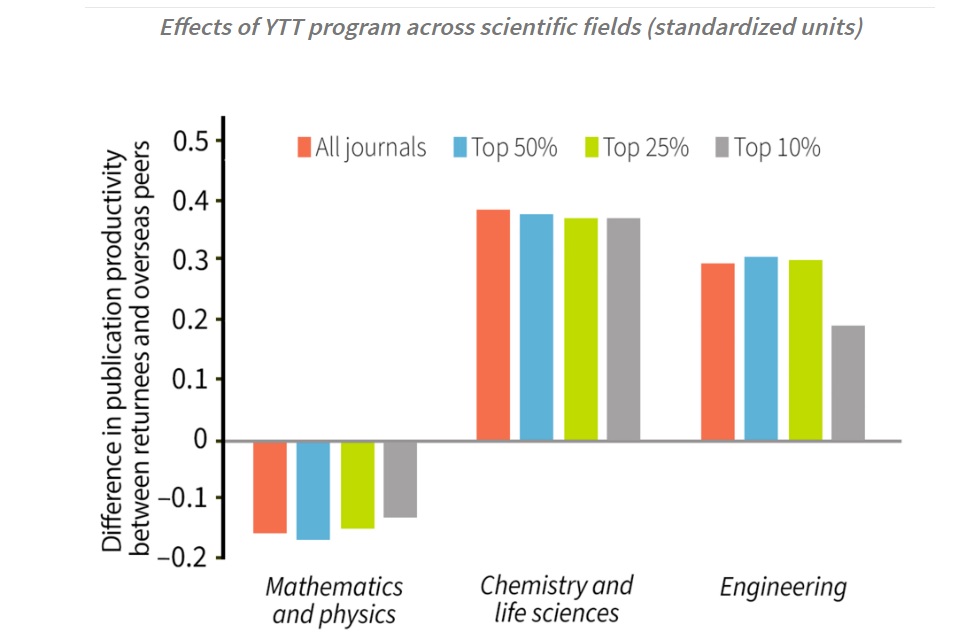|
Getting your Trinity Audio player ready...
|

Conan, who is arguably one of the most acclaimed comedians in the world, is a military history
buff. As a part of my usual doom-scrolling routine, I found myself lost in his particular thought regarding history on the Howard Stern Show.
‘History is way better than most fiction, it’s even higher stakes, bolder characters and mind-boggling endings.’
And who’s to argue with that statement? The number of times history finds itself re-written is fascinating. The contrasting accounts of Justinian, some painting him as a benevolent ruler of the Byzantine Empire and others labelling him as a vengeful, ignorant, gluttonous ruler. Nero, a man of the fine arts who did much to fix Rome after the horrors of Caligula is painted by Tacitus. But I’m going off on a Roman Tirade, let’s get back to where we left off last time shall we?
Well, last time we identified the deep links between the military-industrial complex and academia. Now, I just took the example of the United States last time, but let’s not forget all countries share the same bed with their top universities. Take IIT-Madras for example, who recently signed an MoU to develop 155m munitions for the Indian Army, while also setting up a separate 5G Test Bed for the armed forces. Crazy, isn’t it? How deep the ties between the military and academia are.
But back to China. China presents itself as a unique contender here, not only because they rely on their universities to develop robust Intellectual Property, but also because they love entrusting that business globally. There are two potential weapons they serve to use here, avenues which as a geopolitical fanboy, I find interesting. The route of the Talent Programs or the route of NGOs.
Let’s examine the more recent and significantly detrimental to host countries’ research, the Thousand Talent Programs (TTP). Sponsored by the Chinese government, the TTP provides you with a generous salary of roughly $50,000, associated living subsidies and gives you complete freedom to pursue whatever research you desire, set up research labs if you’re senior enough or you could choose to work from your original university too! No need to relocate to China either, just join the program and work from home, looks like the TTP figured out WFH even before the world did!

However, as one finds out further, there are certain caveats to this. As reported by the FBI – First, your research is solely that of Chinese use. You’re not permitted to share the details of your research with your host university, Second, you are actively subjected to Chinese law (provided you relocate, which duh) and lastly, the most ominous of the TTP mandates – You need to recruit colleagues, if possible too.
Now, there is no denying that these schemes seem to be standard when it comes to grants by governments. Taiwan runs the TEEP (Taiwan Experience Education Program) program. The United States has numerous schemes to incentivize researchers to leave their native countries in the quest for knowledge. While we all do acknowledge that what the United States has done is a significant brain drain of talent from multiple developing countries over decades, the incentives have not been issued through the governments but instead through private institutes, and multi-national corporations. Now, one could play devil’s advocate and argue the contrary that what China is doing essentially is providing the same poison ten-fold back to America, but what is startling is the fact that the brain drain has not been public knowledge but instead covert.
Let me take you to 2020, you’re a microbiology researcher. As you’re working on understanding cutting-edge gene therapy’s impact on cancerous cells, your phone rings. As usual, you ignore it as the interaction between two chromosomes under a microscope seems to activate your pre-frontal cortex far more effectively than yet another ‘covfefe’ tweet that President Donald Trump has made about the Mexican border. Your phone rings yet again, but you choose to power it off till lunch. As lunch rolls by, you remember that you forgot to order vegetables for dinner. As you switch on your phone, you find out that the National Institute of Health, the governing body of health sciences has flagged your institution under the threat of espionage.
The NIH report argues that these talent programs induce espionage through two methods – Jailbreaking the peer-review system, and shadow labs.
A few days later, your former colleague Dr Charles M. Lieber, one of the leading chemists across the world who’s pegged to win the Nobel Prize in Chemistry is found guilty on two counts, misreporting funds he received as a part of the Thousand Talent Program. As the Justice Department found, Dr. Lieber had a three-year contract with Thousand Talents, under which he agreed to establish a research lab at Wuhan University and to publish articles, organize international conferences and apply for patents on the school’s behalf receiving over $150,000 in living subsidies and $50,000 in grants.

What you see over here, is a pattern. Bold promises, contracts signed and thus the ploy of technology transfer begins. As the NIH (National Institutes of Health) found in its report, 70% of the flagged researchers failed to report their funding. And with amounts to the likes of $164 million, the brevity of the matter cannot be toned down. Now as detractors of the investigations will argue, the opportunity that such talent programs provide as evidenced by a relative increase in publication across all reputed journals (as seen in the figure below), shows the stupidity of the investigations.
But, let’s take a look at the nitty-gritty of the NIH report to assess the detractors’ claim, for although the increase in publications does seem pronounced in life sciences, and engineering there is a significant drop in the hard sciences. Additionally, it looks to be that according to the NIH, while the academic output is relatively pronounced and beneficial when it seems to move contrary to national security, the academic output is a latter priority. But how do they do this? Well, the report argues that these talent programs induce espionage through two methods – Jailbreaking the peer-review system, and shadow labs.
As I highlighted before, the TTP allows you to set up research labs of your choice. Now, this is where the fundamental nature of shadow labs arises. Rather than institute a completely new lab defined with clear purposes and research interests, shadow labs in China act as clones of their US counterparts. Mimicking the research that their friends in the US do, they can essentially play catch-up economics on an academic scale. Fed with proprietary and confidential research, all funded by the NIH, these shadow labs allow Chinese authorities to escape from export controls, successfully obtaining sensitive technology transfers, right before they officially are approved by governments!
The second approach, however, is more direct. As Charles Lieber and another approximately 5% of the flagged scientists do, it’s what I codify as jailbreaking the peer review system. As the peer-review process for literature goes, these TTP researchers sign themselves up to essentially serve as conduits providing recommendations to applicants for grants, gaining access to technology submitted for papers and all the goldmine research can provide. Well, where’s the proof you might ask?
‘A fired MD Anderson scientist used his position on an NIH study section to share grant applications with Chinese colleagues, often with commentary.’
Despite knowing the fact that all eyes are locked on them, China will still actively use the talent program to recruit. When you provide an incentive enough to push an academic’s urge for knowledge to the brink, you are bound to make it work. However, with the advent of research now being driven from the helm of corporations, you do observe a shift of drain from academia to industry. A Chinese individual and her partner-in-crime, a fellow American were arrested recently for leaking confidential trade secrets from a Coca-Cola plant regarding bottle coatings (BPA-coatings).
Another instance would be that of Mr Yu Long, an individual working as a defence contractor, who was instrumental towards developing engines for state-of-the-art aircraft fighters such as the F-22 Raptor and F-35 fighters stashed multiple hard drives and laptops which contained sensitive information regarding a substantial amount of digital media protected by International Traffic in Arms Regulations and Export Administration Regulations for multiple U.S. companies, all of which were sensitive and proprietary. Mr. Yu Long was a TTP participant.
There are numerous instances of such attempts of espionage that have been caught and foiled, and numerous others that might be happening on the other side. However, as individual observers, we cannot do anything but watch from the sidelines as a new front of war opens up. A quote from Yanbo Wang, a student studying international policy in Hong Kong summed up the need for academic espionage, appropriately –
If we perceive the 20th century as a century of international trade and manufacturing, the 21st century is more about a knowledge-based economy and brain power truly matters a lot.
(Divith Narendra is a student of data science, economics, and business with a passion for integrating data and statistics. He writes extensively on industry trends and geopolitics. His works were featured at the G20 and published by Cambridge Union Press. Views expressed are the author’s own)
References:
- “Harvard University Professor Convicted of Making False Statements and Tax Offenses,” United States Department of Justice, December 21, 2021, https://www.justice.gov/usao-ma/pr/harvard-university-professor-convicted-making-false-statements-and-tax-offenses.
- Hepeng Jai, “What Is China’s Thousand Talents Plan,” Nature (London), 554, no 7688 (2018): S8, https://media.nature.com/original/magazine-assets/d41586-018-00538-z/d41586-018-00538-z.pdf.

This article highlights the alarming use of global talent programs like China’s Thousand Talent Programs (TTP) for espionage, jeopardizing sensitive research and national security. The examples of Dr. Charles M. Lieber and Mr. Yu Long underscore the real risks involved. As we advance in a knowledge-based economy, it’s crucial to balance international collaboration with the protection of intellectual property and national interests.
China’s Thousand Talent Programs poses significant espionage risks, as evidenced by cases like Dr. Charles M. Lieber and Mr. Yu Long. Balancing international collaboration with the protection of national security and intellectual property is crucial in our knowledge-based economy. Indian government must keep track of Chinese agents in our academia and ensure that our IP stays with us.